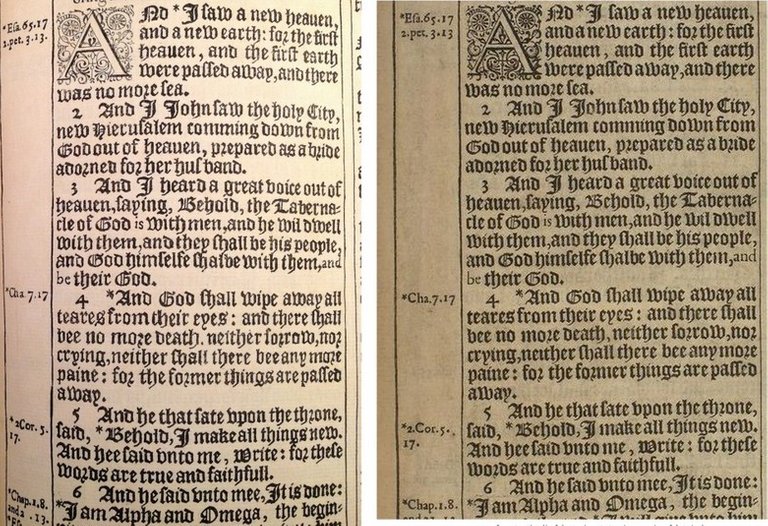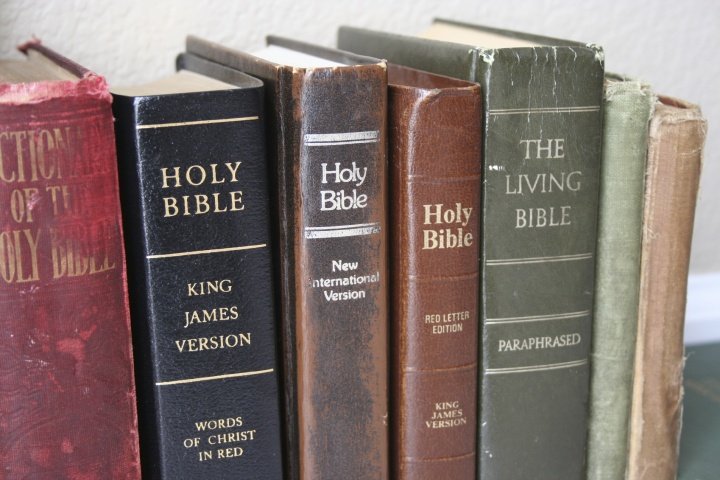And Ezra opened the book in the sight of all the people, for he was standing above all the people; and when he opened it, all the people stood up.... Also Jeshua, Bani, Sherebiah, Jamin, Akkub, Shabbethai, Hodijah, Maaseiah, Kelita, Azariah, Jozabad, Hanan, Pelaiah, and the Levites, helped the people to understand the Law; and the people stood in their place. So they read distinctly from the book, in the law of God; and they gave the sense, and helped them to understand the reading.
Say that you have decided to read through your Bible this year. That's a great commitment to make.
But which translation of the bible will you be reading? Does it make a difference? Should you just read from the same Bible that you have carried for years? Maybe. Maybe not. It all depends on what you want to get out of your Bible study this year.
The process of Bible translation has a long history. In the days of Jesus, some Jews still struggled with the idea of accepting a Greek translation of the Hebrew Scriptures, but the fact was that many Jews around the world did not understand Hebrew. Although a little bit is always lost in translation, this opened the word of God to multitudes of people who had no other access to it. In like manner, the thought of translating the bible into English was anathema to a lot of people in the early Renaissance, but once luminaries like John Wycliffe (14th century) and William Tyndale (16th century) opened the Scriptures to the common people through translation, there was no stopping it. In the original preface to The King James Version, The translators published this justification for the work in which they engaged:
"Translation it is that openeth the window, to let in the light; that breaketh the shell, that we may eat the kernel; that putteth aside the curtain, that we may look into the most Holy place; that removeth the cover of the well, that we may come by the water... Indeed without translation into the vulgar tongue, the unlearned are but like children at Jacob's well (which was deep. John 4:11) without a bucket or something to draw with."
The King James Version (KJV) with which so many of us are familiar is actually the latest in a series of revisions of the original version. Most of the changes were made for the purpose of updating spelling and orthography (the way the letters are printed). Imagine trying to read through the bible with text looking like this sample from a 1611 KJV:

image source
The fact is, however, that for a lot of modern readers who did not grow up with the language and cadences of the KJV, this venerated translation is almost as foreign to their ears as the Greek and Hebrew originals. Thankfully there are other English translations available which faithfully convey God's message for mankind in words and phrases more familiar to 21st century audiences.
But is one translation just as good as another? Are there not translations out there that willfully and shamelessly change God's word in order to serve their own theological agendas? Yes there are. This is why we need to be discerning. In coming articles we will survey several English translations, and even if you are very happy with the one you commonly use, keep reading.

Hi this post is so good cuz this is holy book
M new here i dnt knw how to use that how like or other please like me nd commt me i will like and comt u back
Welcome to Steemit, @nabi-muhammad! We haven't been here long ourselves. Glad you enjoyed this post, and glad to meet you!
This is a 4 part series on the subject. The others will be posted in the coming days. If you would like, follow us, so you don't miss the rest of the study. You can do that by clicking on our user name, then clicking "Follow" button in the top right of our blog page.
If you have any questions, feel free to ask, and we will answer them to the best of our ability.
God bless!
Congratulations @biblicalvp! You have completed the following achievement on the Steem blockchain and have been rewarded with new badge(s) :
Click here to view your Board
If you no longer want to receive notifications, reply to this comment with the word
STOP